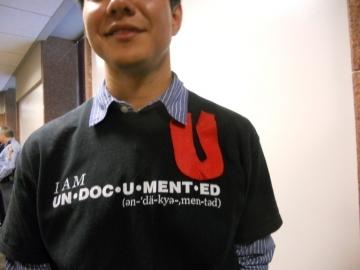
Section Branding
Header Content
Checking On Immigration Enforcement
Primary Content

A civil rights coalition will begin monitoring 28 jurisdictions after a federal judge ruled that Georgia law enforcement can ask a person to prove their legal status. Immigration advocates want to make sure officers don’t go beyond the letter of the law.
Omar Jadwat, supervising attorney for the ACLU Immigrants’ Rights Project, says Friday’s ruling still limits what officers can do. “Those police can’t extend stops in order to verify people’s immigration status. They can’t hold people because they suspect them of being undocumented or detain them for that reason. “ he said.
Naomi Tsu with the Southern Poverty Law Center says the state has said it will comply. But she says their clients have given them a list of 28 jurisdictions to watch. “Counties and police departments where they had experienced, or their members had experienced racial profiling or high numbers of deportations arising out of relatively minor incidents, like traffic incidents.”
The coalition is asking law enforcement agencies in areas around Atlanta and Macon, as well as Savannah, along Georgia’s eastern coast to explain how they will implement the law.
Tsu says “We continually hear from people in the communities that there are stops that are made for reasons that seem suspicious. Where somebody is stopped for driving without a license, which isn’t something that you can see from the outside. And then they’re taken to a jail and put into a deportation process.”
She says they will consider lawsuits if they find evidence that officers go beyond the letter of the law.
On July 19 a federal judge dismissed the constitutional challenge to Georgia's 2011 immigration law. In December, U.S. District court Judge Thomas Thrash lifted a preliminary block and allowed law enforcement to start enforcing the so-called "show me your papers" provision.
The order does not prevent future lawsuits by a person who might claim an unconstitutional search if they are detained by authorities. But Thrash cited a U.S. Supreme Court ruling on a similar Arizona law that justices said was not on its face unconstitutional.
Contributors: Associated Press
Tags: immigration, Southern Poverty Law Center, ACLU, show your papers
